The Contestant: How a Japanese comedian was kidnapped, stripped naked and secretly broadcast to millions
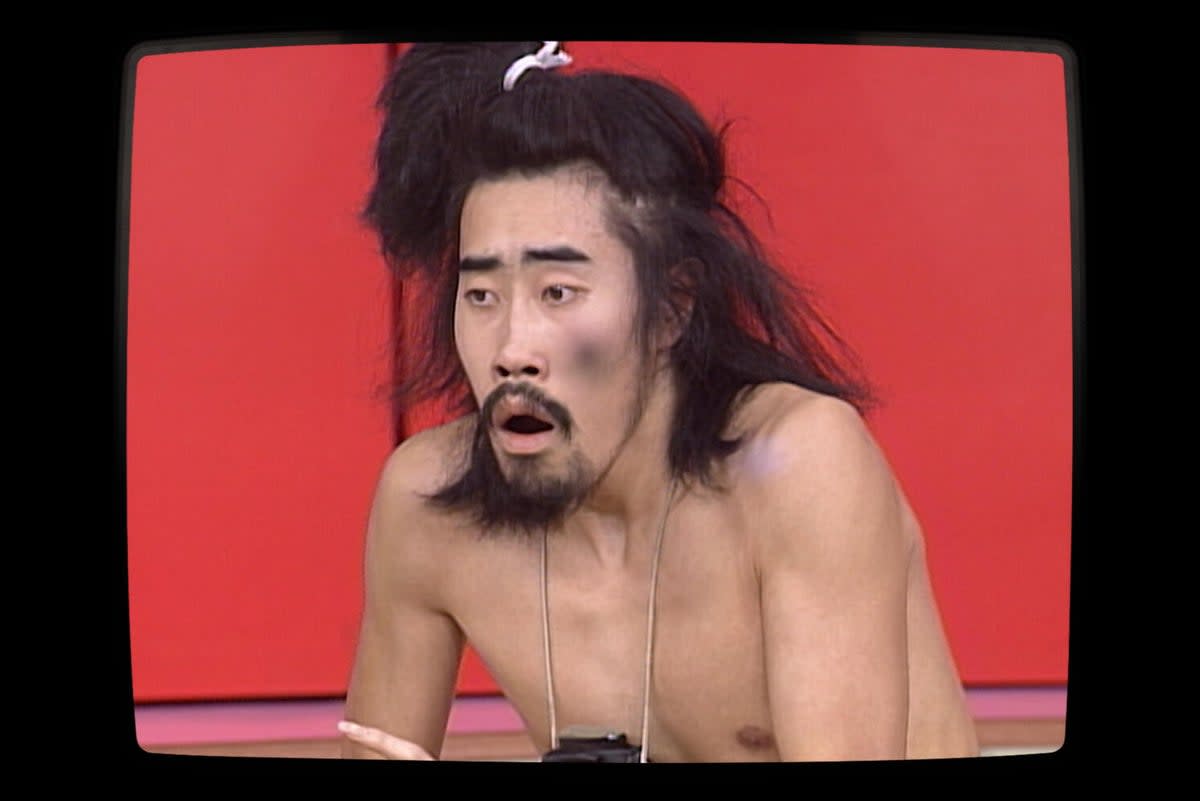
Tokyo, 1999. A large studio audience watches breathlessly as a man is led, blindfolded, into the middle of the stage. The man is 24-year-old comedian Tomoaki Hamatsu (nicknamed Nasubi), and for the past 15 months, millions have tuned into Denpa Shōnen’s Life of Prizes to watch him in total isolation, surviving purely off the food, clothing and appliances that he manages to win from mail-in magazine competitions. Unbeknown to him, Nasubi is a household name, and his torturous tenure on Japanese reality television has just come to a close. Twenty-five years on, Hulu’s new documentary, The Contestant, tells the true story of how Nasubi was essentially kidnapped and non-consensually broadcast, every week, to an audience greater than the Game of Thrones finale.
British director Clair Titley’s documentary begins by explaining Nasubi’s name – it means “aubergine” in Japanese and was earned because of his extraordinary, Moai statue of a face. “Just because I had a long face, bullies [in school] would beat me up,” Nasubi, now 48, explains on camera. As with so many future comedians, Nasubi used humour to protect himself. “I noticed that by making people laugh, I could change my situation,” he says.
Pursuing a career in the entertainment industry, Nasubi moved from rural Fukushima to Tokyo in the Nineties to seek his fortune. His only promise to his parents? “Whatever you do, don’t get naked.” At the time, reality television was exploding in Japan and had quickly gained a reputation for putting contestants through sadistic trials. Game shows saw players downing scolding–hot bowls of ramen, or launching themselves at Velcro walls in the hopes of achieving fame and fortune. Frequently, these antics resulted in serious physical injuries. The concept was infamous enough to be spoofed by The Simpsons in the 1999 episode, “30 Minutes Over Tokyo”. In order to win plane tickets back to Springfield from Japan, Homer is put in a piñata and beaten by his family, then tied to Tokyo Tower during a lightning storm. Wink, the episode’s game show host voiced by Star Trek’s George Takei, explains to the family: “Our game shows are a little different from yours. Your shows reward knowledge. We punish ignorance.”
One of the most popular series at the time was Susunu! Denpa Shōnen (“Do not proceed! Crazy youth”), which saw participants face extreme challenges such as riding a pedalo from India to Indonesia. “It was a show where unknown people could make their name and become celebrities practically overnight. It was a star machine,” says the BBC’s former Japan correspondent Juliet Hindell in The Contestant. “I saw it as my first big chance,” adds Nasubi.
The auditions were televised and unconventional – in a room full of other young hopefuls, Nasubi was cast after drawing his name from a hat. None of them had any idea what the concept of the show would be. Immediately, Nasubi was led away by the show’s creator Toshio Tsuchiya, before being blindfolded and bundled into a van. Somewhere in snowy Tokyo, Nasubi was led into a tiny, bare apartment where he would spend the next 335 days in total solitude.
The concept of the show was simple: Nasubi would have to survive solely on what he could win from the competitions advertised in a huge stack of magazines he’d been given. The challenge would be over once he had won 1 million yen (£5,000) worth of prizes.
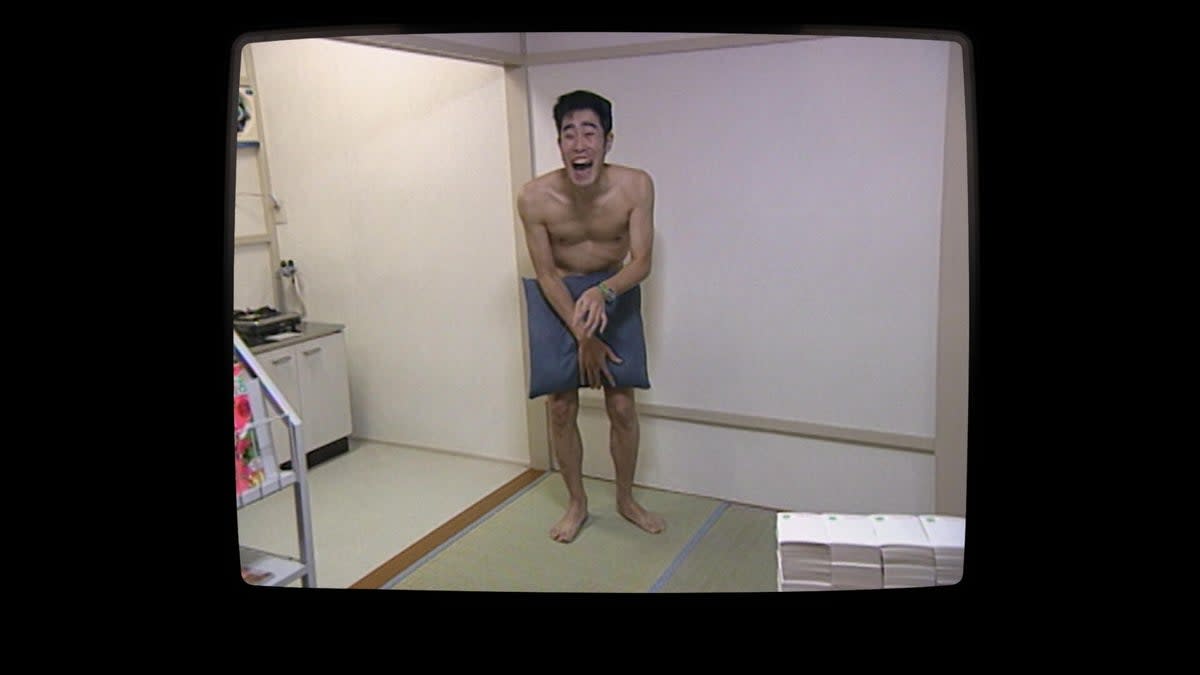
He started with nothing. Even the clothes on his back were removed – he would have to win those too. The producers of the show set Nasubi up with a camcorder and told him he would be self-recording his experiences, with the footage to be edited and broadcast at a later date. In reality, he was being filmed the entire time, with episodes being aired to the public each week. “In the beginning, the people working on the television show really kind of created all the loneliness for me,” Nasubi told Deadline recently. “I really felt cornered. And then I felt that’s really scary, how humans can do that to other people.”
For the first few weeks, Nasubi suffered greatly as he waited for responses to his competition entries. The producers kept him from starvation with small rations of crackers until, finally, after 17 days, he won his first prize: 12 cartons of juice. “It wasn’t enough to fill me up, but it was enough to keep me alive,” Nasubi says in the documentary. It took another 11 days for Nasubi to win more food – some rice, which he was able to cook by stuffing it in an empty juice carton and leaving it by the side of his cooker.
In the following weeks and months, viewers watched in riveted fascination as Nasubi survived off of various bizarre comestibles – primarily dog kibble. He won plenty of useless items, too: a bicycle; movie tickets; ladies underwear. A stuffed toy prize became his “sensei” whom he would engage in conversation (think Tom Hanks and Wilson in Castaway). Nasubi quickly won fans for his joyous reactions to the prizes, often breaking into celebratory dance. The truth, however, was that these were just fleeting moments of joy in an ocean of despair. One week of the comedian’s monotonous routine was condensed into just 10 minutes of entertainment for Denpa Shōnen. “Although I seemed like I was having fun most of the time on the edited show, to me, it was full of pain,” he told Style Koriyama in 2020. “Everything was harsh, and every day was like hell back then. The hardest thing was not to be able to see and talk with anyone. My mental condition was at its worst. I was like, ‘Why only me? Why do I have to do all these things? I’d rather die than feel like this.’”
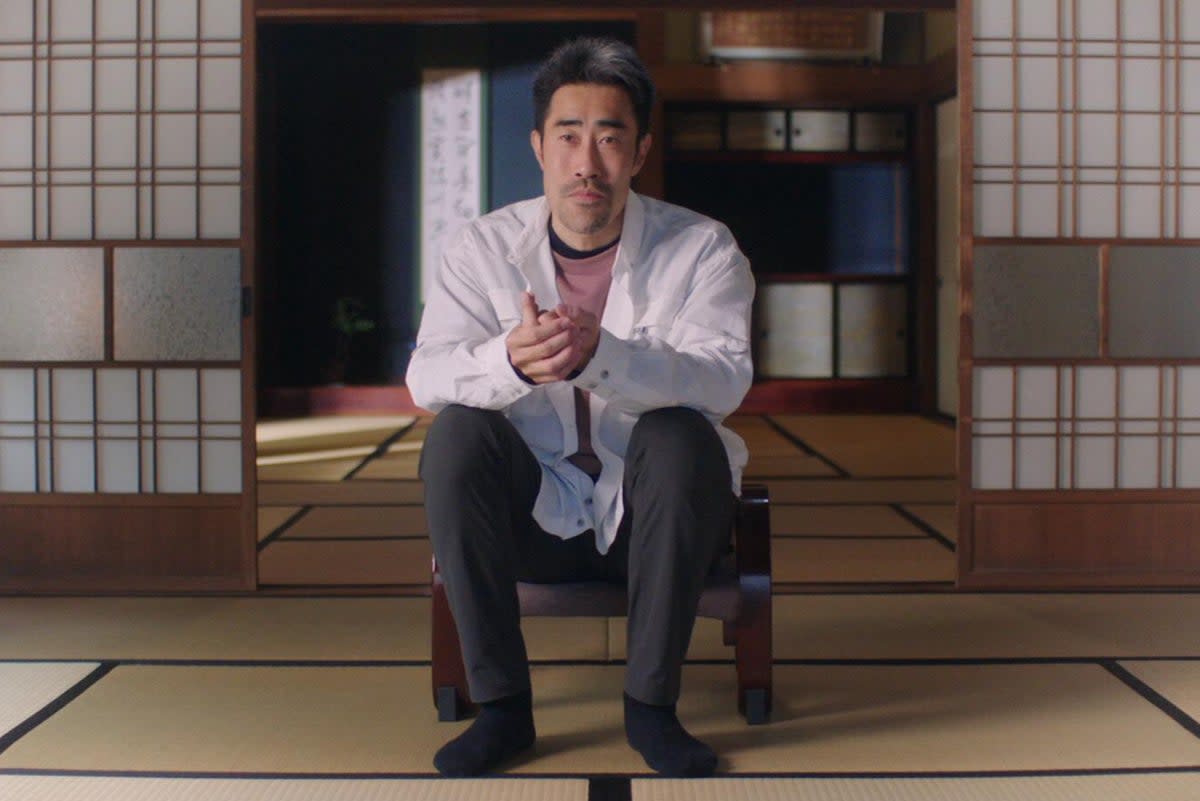
To make matters stranger, the door to Nasubi’s apartment was never locked – he could have left at any time. “That was the first thing I tried to wrap my head around,” said Titley in the show’s production notes, “why would someone put up with that?” In the documentary, Nasubi suggests he may have been suffering from something comparable to Stockholm Syndrome. “You hear of people being held captive,” he says. “Psychologically, you feel that rather than escaping or doing something radical, staying put, not causing trouble is the safest option. It’s a strange psychological state. You lose the will to escape.”
The show became so popular that paparazzi and fans had begun to decipher the location of the apartment where Nasubi was being held. In order to keep him from learning that he was being televised, the producers moved him, blindfolded, to a new apartment. In a heartbreaking moment, Nasubi looked through his possessions to discover that a bag of rice had gone missing. Moments later, a producer re-entered to say they had forgot the rice in the truck. “It’s OK to forget other things, but you cannot forget the rice!” Nasubi told them.
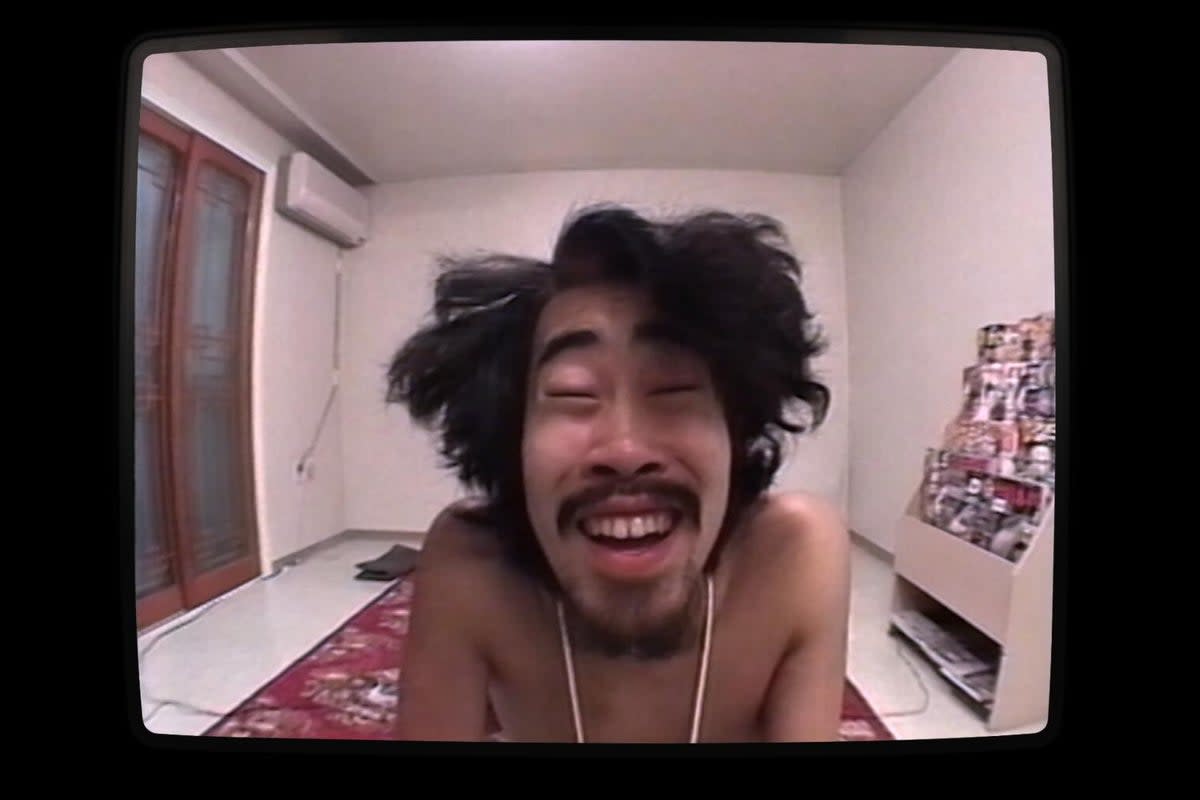
After winning a valuable set of four car tyres worth around 84,000 yen, Nasubi closed in on his goal, which he soon reached with another bag of rice after nearly a year on the show. The producers informed him of his victory by firing party poppers over him in the dead of night. His clothes were returned to him and the producers whisked him away for a day full of treats in South Korea.
However, in the show’s cruellest twist of all, Nasubi was then taken to another apartment identical to the one in Japan and challenged to repeat his success. After three hours of negotiations with series creator Tsuchiya, Nasubi capitulated, his spirit broken. “Whether it was wrong or not… I couldn’t help but be obsessed,” Tsuchiya admits in The Contestant. Nasubi’s new goal was to win enough prizes to pay for an economy class ticket back to Japan, but there was just one problem for the producers: Nasubi had got good at this. After racing past his target, producers moved the goalposts without his knowledge to a business class ticket, then a first class ticket.
After achieving this feat, he was led into yet another featureless apartment, and Nasubi instinctively stripped. However, the walls of the room then collapsed, revealing that he was in fact in the middle of a filming studio. It was over. Nasubi squinted into the harsh lighting, his hands outstretched to cover his face with long, sharp nails protruding towards the ceiling. He was a picture of human decay. He looked around at the live studio audience. “Do you mean that everyone has been watching my naked body all this time?” he asked the finale’s presenter. “That’s out of order. Is it allowed?” The entire ordeal had lasted 15 months (January 1998 to April 1999).
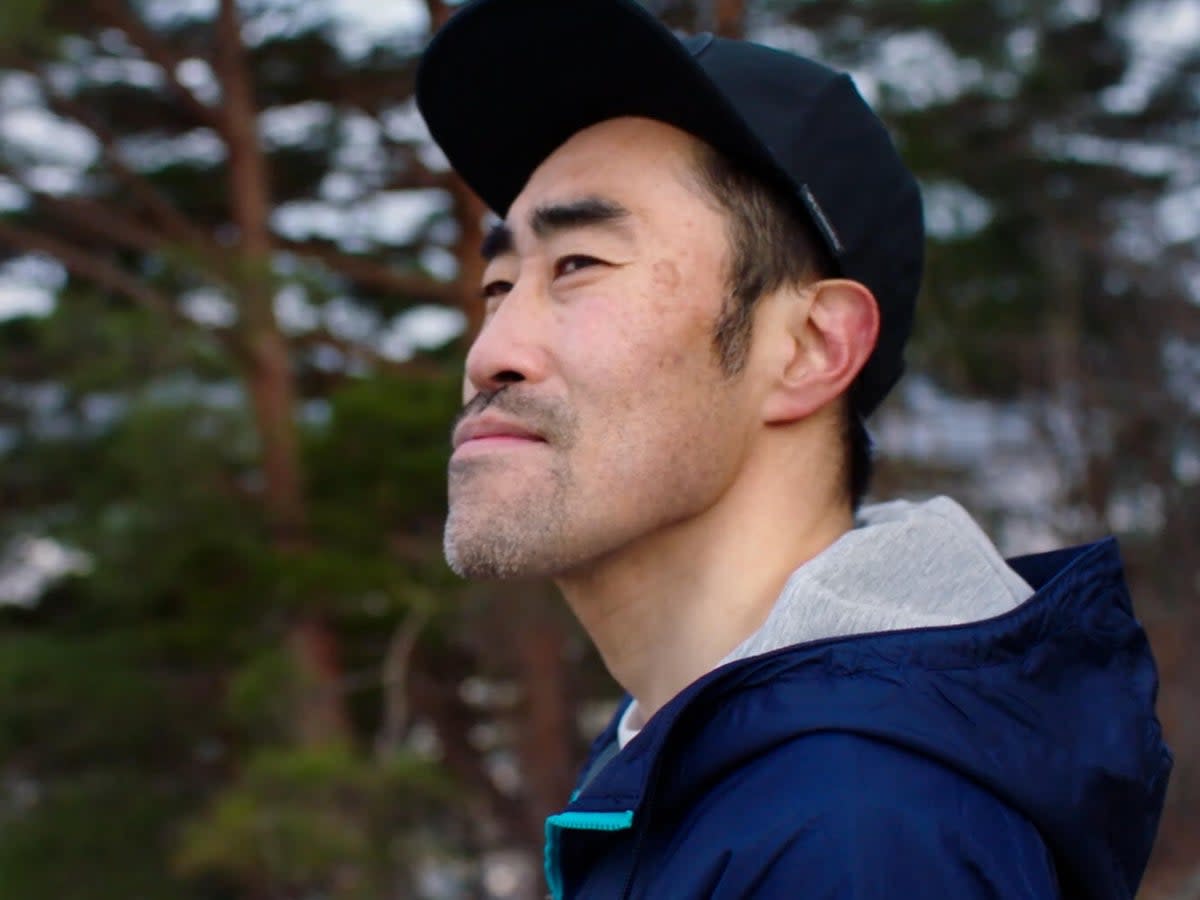
In the years following the events of A Life in Prizes, the comedian’s career never took off in the way that he hoped, but he was able to use his fame for a good cause. In 2016, Nasubi summited Mount Everest as part of efforts to help his hometown of Fukushima recover from the 2011 Tōhoku earthquake and tsunami. During the Covid-19 pandemic, he became an advocate for social distancing and staying at home, sharing his advice for dealing with feelings of isolation.
During the 2024 Camden International Film Festival, Titley read out a poignant statement from Nasubi about the new documentary. “I’m in a complicated state of mind mixed with anxiety and expectations about how the people who watched this movie feel,” he said. “I think this kind of work is probably often made after the main character’s death, but fortunately, I’m alive and well. And many people may think that I am an unhappy and poor person who lives a life hit by tragedy. But I’m never an unhappy person. Because I know that if I have a reliable friend who shares just an inch of happiness and supports me, I can live well with a smile. I hope that people who have seen this movie will think about what is important in living, and live a rich life even a little.”
‘The Contestant’ is out on Hulu on 2 May
